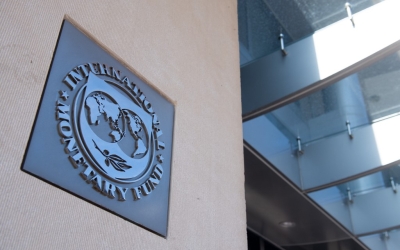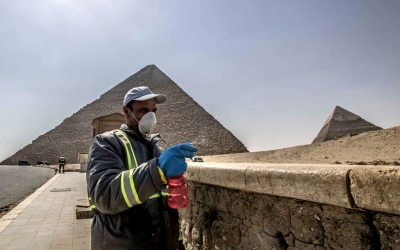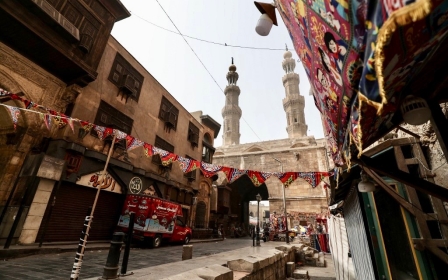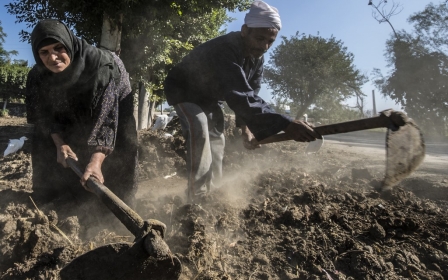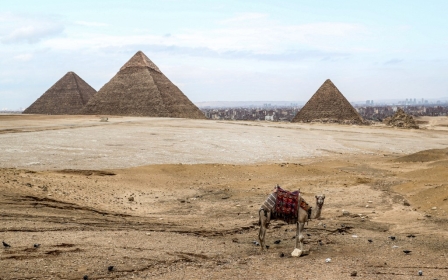Coronavirus: Egypt to raise electricity prices amid economic woes
Egypt will increase electricity prices in July by up to 19.1 percent according to a plan to gradually lift all energy subsidies by July 2021, Mohamed Shaker, Minister of Electricity and Renewable Energy, announced on Tuesday.
The new increase comes despite a significant drop in energy prices globally, and as the price of a barrel of oil has nearly halved in comparison with its price as calculated in Egypt’s annual budget.
Shaker mentioned that his ministry had already raised electricity bills by 21.3 percent this year and by 23.1 percent last year.
The minister explained that the plan to cut electricity subsidies began in 2015-16, and was planned to end in July 2019 with a complete liberalisation of electricity prices.
However, with the devaluation of the Egyptian pound in 2016, the subsidy-lifting plan was extended by three years, and scheduled to be completed by 2021-22, he added.
The minister announced that, due to the coronavirus pandemic and its economic repercussions, the government has decided to extend the plan to fully liberalise the prices of electric energy by an additional three years, ending in 2024-25.
Meanwhile, Shaker said energy costs would continue to be subsidised at a fixed rate for industrial consumption over the next five years, while factories would be given a reduction of 10 piastres (approximately $0.01) per kilowatt/hour from the present price.
Shaker added that the increased cost for everyday consumers was calculated according to the exchange rate of 16 Egyptian pounds to the US dollar, which means that prices will likely increase if the exchange rate changes.
The pound’s exchange rate currently stands at $16.25, according to the Egyptian Central Bank.
The announcement has triggered immediate criticism by economists and government critics, who accused the government of overlooking the economic hardships experienced by the majority of citizens as a result of the pandemic-induced lockdown, along with the price increases already in place since the depreciation of the pound in 2016.
Egypt is reportedly in talks with the International Monetary Fund (IMF) to receive a second tranche of emergency funding after receiving nearly $2.8 billion in May as the coronavirus outbreak has taken its toll on the economy.
The country’s central bank deputy governor confirmed to Al-Arabiya news channel previous media reports that Egypt would seek a further $5 billion from the IMF and $4 billion from other sources for a total of $9 billion.
The pandemic has resulted in a deep economic downturn in Egypt like in other countries across the world, with foreign reserves falling from more than $45.5bn to $37bn. The Purchasing Managers Index, a measure of the business environment, has fallen from 44.2 in March to a historic low of 29.7 in April.
Tourism and remittances from Egyptian workers abroad, two of the main sources of national income, have been particularly hit.
'More burden on citizens'
Ahmed Zikrallah, an economic analyst and former professor of economics at al-Azhar University, said it is likely that Cairo “was forced” to lift subsidies with the current negotiations with the IMF to secure a second bundle of emergency funding.
“I believe that the IMF has imposed this increase on Egypt as a condition for the new aid and to fulfil conditions for the previous tranches,” he told Middle East Eye.
Zikrallah said that Cairo is seeking to raise money to fight the pandemic “from the pockets of citizens” due to a shortage of other resources.
“The increase goes contrary to what is happening in other countries that have been economically damaged due to the pandemic," he said.
“Whereas most governments have reacted to the crisis by providing different sorts of aid to its citizens, companies and institutions, Egypt is putting more burdens on its citizens.”
Zikrallah added that, despite the absence of official information from the Egyptian government, it is likely that the global drop in oil and natural gas prices effectively means that Egypt has already lifted all energy subsidies.
“We need clarification from the government on whether there are still any subsidies for fuel and electricity in light of the current oil and natural gas prices,” he said.
Ashraf Dawaba, an academic and economic analyst, said that the Egyptian government was “detached from its citizens”.
“We are in the midst of a crisis, and the government is required to support the people,” he told MEE.
“From the very beginning, [the] Sisi government’s economic approach has been based on shocking decisions that have no regard for the reactions of the street. It is a repressive system, and will continue to be so.”
Middle East Eye delivers independent and unrivalled coverage and analysis of the Middle East, North Africa and beyond. To learn more about republishing this content and the associated fees, please fill out this form. More about MEE can be found here.


